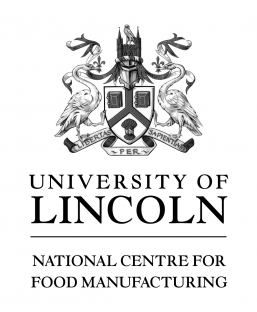
Course Summary
The BSc (Hons) in Food Operations and Supply Chain Management has been developed to prepare students for managing multi-disciplined teams in today’s fast-paced food manufacturing environments. Students are introduced to both the theoretical and practical aspects of management within food manufacturing sector including planning, logistics, technical support and resource management.The Course
The BSc (Hons) in Food Operations and Supply Chain Management has been developed to prepare students for managing multi-disciplined teams in today’s fast-paced food manufacturing environments. Students are introduced to both the theoretical and practical aspects of management within food manufacturing sector including planning, logistics, technical support and resource management.
The course aims to provide students with the necessary technical knowledge in order to support the safe production of food within their roles. The course acknowledges the importance of a holistic, all-encompassing farm-to-fork supply chain focus across the food sector.
The course also aims to equip students with the essential practical and professional transferable skills to enable them to reach their potential within the food sector as well as academic, industrial, commercial, government and environmental settings. The course places considerable emphasis on enhancing intellectual, critical analysis, problem solving, project and time management, report writing, teamwork, ethics, health and safety, intellectual property, information technology and career management.
This course can be studied at Foundation (FdSc) or Bachelor’s (BSc) level. Both courses are offered on a part-time basis and are run predominantly through distance learning.
Applications should be made direct to the University using the part-time application form:
http://www.lincoln.ac.uk/apply
How You Study
This course is delivered through blended learning and uses a variety of learning modes. The delivery of the programme is also flexible, in that it is taught primarily through distance learning and study blocks where attendance is required at the NCFM.
Distance learning is achieved through the delivery of engaging digitally-enhanced learning materials produced by experienced research-led academic and support staff. In addition, module seminars and tutorials are typically planned to give students the opportunity to apply, investigate, assimilate and evaluate issues around the core lecture topics.
Practical sessions, where applicable, for experimentation and/or illustration of principles, practices and techniques are timetabled for the appropriate modules and typically delivered through student attendance at campus during the study weeks.
For the science-based modules these practical sessions usually take place in fully supported research laboratories where there is full technician support for timetabled activities and for students’ project works.
Contact Hours and Reading for a Degree
Students on this programme learn from academic staff who are often engaged in world-leading or internationally excellent research or professional practice. Contact time can be in workshops, practical sessions, seminars or lectures and may vary from module to module and from academic year to year. Tutorial sessions and project supervision can take the form of one-to-one engagement or small group sessions. Some courses offer the opportunity to take part in external visits and fieldwork.
It is still the case that students read for a degree and this means that in addition to scheduled contact hours, students are required to engage in independent study. This allows you to read around a subject and to prepare for lectures and seminars through wider reading, or to complete follow up tasks such as assignments or revision. As a general guide, the amount of independent study required by students at the University of Lincoln is that for every hour in class you are expected to spend at least two to three hours in independent study.
Modules
Level 1
- Food Law, Ethics and CSR (Core) Find out more
- Food Quality Assurance, HACCP and Hygiene (Core) Find out more
- Food Science (Core) Find out more
- Food Sector Business , Finance, People and Performance (Core) Find out more
- Health & Safety, Energy and The Environment (Core) Find out more
- Inventory and Procurement Management (Core) Find out more
- Managing Self and Others in Food Organisations (Core) Find out more
- Policy and Market Dynamics (Core) Find out more
Level 2
- Corporate Leadership and Governance in the Food Sector (Core) Find out more
- Foundation Project (Core) Find out more
- Lean Manufacturing and Continuous Improvement (Core) Find out more
- Planning, Forecasting and Logistics Management (Core) Find out more
- Project Management and Management of Change (Core) Find out more
- Supply Chain Analysis (Core) Find out more
- Value Chain Analysis (Core) Find out more
Level 3
- Advanced Commercial Relationships and Negotiation Skills (Core) Find out more
- Advanced Food Sector Business, Finance, People and Performance (Core) Find out more
- Fast Moving Consumer Goods (Core) Find out more
- Holistic Margin Management (Core) Find out more
- Independent Project (Core) Find out more
- Managing Supply Chain Relationships (Core) Find out more
†The availability of optional modules may vary from year to year and will be subject to minimum student numbers being achieved. This means that the availability of specific optional modules cannot be guaranteed. Optional module selection may also be affected by staff availability.
How You Are Assessed
Assessment on this programme will include written reports, work-based research projects, presentations, case studies and practical assessments. The format and timing of assessment is planned to take account of the needs of students studying whilst in employment. The assessment timetable is planned, as far as is reasonably practical, to take account of busy periods within the industry.
Assessment Feedback
The University of Lincoln's policy on assessment feedback aims to ensure that academics will return in-course assessments to students promptly – usually within 15 working days after the submission date (unless stated differently above)..
Methods of Assessment
The way students are assessed on this course may vary for each module. Examples of assessment methods that are used include coursework, such as written assignments, reports or dissertations; practical exams, such as presentations, performances or observations; and written exams, such as formal examinations or in-class tests. The weighting given to each assessment method may vary across each academic year. The University of Lincoln aims to ensure that staff return in-course assessments to students promptly.
Features
The Centre’s team has in-depth experience in food science and technology research, including food manufacturing systems (lean manufacturing, packaging and automation), food process engineering, and food quality and safety systems.
Student as Producer
Student as Producer is a model of teaching and learning that encourages academics and undergraduate students to collaborate on research activities. It is a programme committed to learning through doing.
The Student as Producer initiative was commended by the QAA in our 2012 review and is one of the teaching and learning features that makes the Lincoln experience unique.
Placements
Placement Year
When students are on an optional placement in the UK or overseas or studying abroad, they will be required to cover their own transport and accommodation and meals costs. Placements can range from a few weeks to a full year if students choose to undertake an optional sandwich year in industry.
Students are encouraged to obtain placements in industry independently. Tutors may provide support and advice to students who require it during this process.
Fees & Scholarships
For Home/EU students
The following fees apply to students who are paying their own fees. They also apply to students who are being sponsored by their employer outside of Apprenticeship schemes. Employers seeking to support students through the Apprenticeship levy should contact the National Centre for Food Manufacturing.
BSc (Hons) Programmes
| September 2017 | January 2018 | |||
|---|---|---|---|---|
| Credits | Fee | Credits | Fee | |
| Year 1 | 105 | £5,880 | 60 | £3,360 |
| Year 2 | 105 | £5,880 | 105 | £5,880 |
| Year 3 | 80 | £4,480 | 95 | £5,320 |
| Year 4 | 70 | £3,920 |
100 |
£5,600 |
| Total | 360 | £20,160 | 360 | £20,160 |
| Individual Modules | Students wishing to access individual modules in any year of the programme will be charged £56 per credit point. | |||
Apprenticeship charges for employers accessing open provision
Levy Paying Employers – funding bands
Apprenticeship frameworks and standards are assigned to a funding band by the Government and the table below shows the allocation of NCFM’s Apprenticeship provision within the Government’s funding bands. Charges are listed below for Apprenticeships underpinned by standards. These are subject to any changes made by the Government to published funding rates as defined in the following link https://www.gov.uk/government/publications/apprenticeship-funding-bands.
For further information on NCFM’s charges for Apprenticeship provision please contact Sharon Green on shgreen@lincoln.ac.uk or call 01406 493000.
| Level | Duration | Programme | Band | Band Maximum /charge |
|---|---|---|---|---|
| 6 | 4 years | Degree Apprenticeship - underpinned by BSc (Hons) | 15 | £27,000 |
| 6 | 18-24 months | Degree Apprenticeship – ‘top up’ from Foundation Degree | 15 | Charge - £14,000 |
| 5 | 3 years | Higher Apprenticeships | 15 | £27,000 |
Non-Levy Paying Employers
Non-Levy Paying Employers should contact the National Centre for Food Manufacturing directly to check the availability of Education and Skills Funding Agency funded Apprenticeship places for smaller employers. Where funded places are available, eligible businesses are required to contribute to 10% of the above charge. There is an exception for businesses employing fewer than 50 people where Apprentices aged 16 to 18 at the start of their programme can be fully funded.
For more information and for details about funding your study, please see our UK/EU Fees & Funding pages or our International funding and scholarship pages.
Additional Costs
For each course students may find that there are additional costs. These may be with regard to the specific clothing, materials or equipment required, depending on their subject area. Some courses provide opportunities for students to undertake field work or field trips. Where these are compulsory, the cost for the travel, accommodation and meals may be covered by the University and so is included in the fee. Where these are optional students will normally (unless stated otherwise) be required to pay their own transportation, accommodation and meal costs.
With regards to text books, the University provides students who enrol with a comprehensive reading list and our extensive library holds either material or virtual versions of the core texts that students are required to read. However, students may prefer to purchase some of these for themselves and will therefore be responsible for this cost. Where there may be exceptions to this general rule, information will be displayed in a section titled Other Costs below.
Entry Requirements 2019-20
GCE Advanced Levels: CCC
A foundation degree, BTEC Diploma/Extended Diploma with Merit, Merit, Merit, Advanced Apprenticeship in Food Manufacturing or a related subject with be considered Vocational and Professional qualifications will also be considered.
Ideally, candidates will have been employed in a managerial or supervisory role in the food manufacture or related industry.
In addition, applicants must have at least 2 GCSEs in Maths and English at grade C or above. Equivalents are accepted for example Functional Skills Level 2 or IELTS.
Download the full 2019-20 Programme Specification for this course (PDF)
Learn from Experts
Throughout this degree, students may receive tuition from professors, senior lecturers, lecturers, researchers, practitioners, visiting experts or technicians, and they may also be supported in their learning by other students.
Comprehensive list of teaching staff
Your Future Career
Students on this programme may progress to roles including food manager, operations manager, production manager, manufacturing manager, business unit manager or general site manager. The BSc (Hons) in Food Operations and Supply Chain Management also aims to equip students with the essential practical and professional transferable skills to enable them to reach their potential within the food sector as well as academic, industrial, commercial, government and environmental settings.
Careers Service
The University Careers and Employability Team offer qualified advisors who can work with students to provide tailored, individual support and careers advice during their time at the University. As a member of our alumni we also offer one-to-one support in the first year after completing a course, including access to events, vacancy information and website resources; with access to online vacancies and virtual resources for the following two years.
This service can include one-to-one coaching, CV advice and interview preparation to help you maximise our graduates future opportunities.
The service works closely with local, national and international employers, acting as a gateway to the business world.
Visit our Careers Service pages for further information http://www.lincoln.ac.uk/home/campuslife/studentsupport/careersservice/.
Facilities
The National Centre for Food Manufacturing (NCFM) is based in Holbeach, in south Lincolnshire. This food manufacturing technology hub provides specialist facilities and industry-standard equipment, including analytical laboratories with a test kitchen and sensory testing suite, a technician training centre and processing facilities.
At Lincoln, we constantly invest in our campus as we aim to provide the best learning environment for our undergraduates. Whatever the area of study, the University strives to ensure students have access to specialist equipment and resources, to develop the skills, which they may need in their future career.
Minerva House,
Holbeach Park Road,
Spalding,
Lincolnshire,
England,
PE12 7PT

 cy
cy




